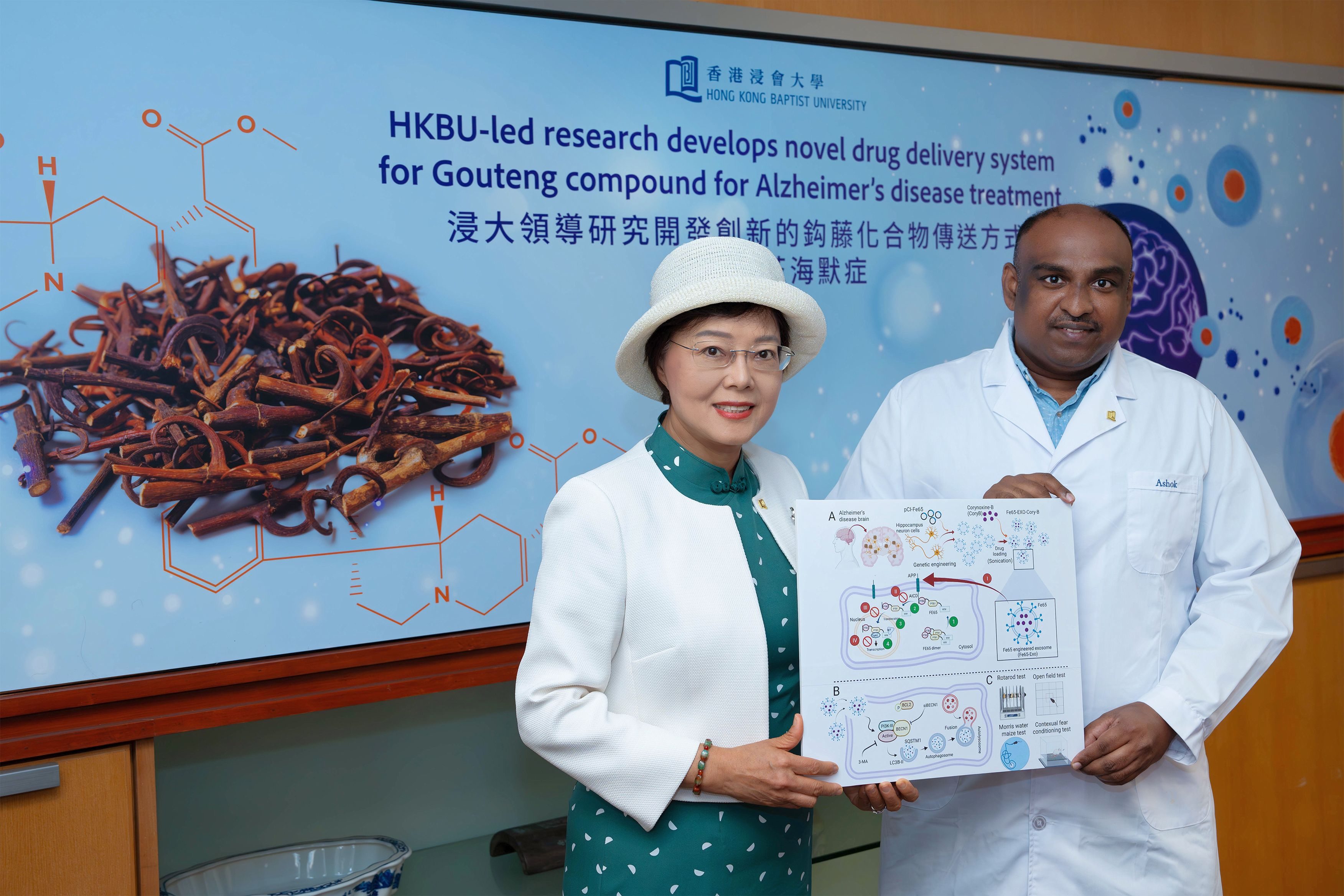News
Scientific Breakthrough: Professor Li Min’s team develops novel drug delivery system for Gouteng compound for Alzheimer's disease treatment
12 December 2023
A research team led by Professor Li Min, Associate Dean (Teaching and Learning) of Chinese Medicine, and Dr. Ashok Iyaswamy, Research Assistant Professor of the Teaching and Research Division, has developed a novel drug delivery system for Alzheimer’s disease (AD). The research findings have been published in the international academic journal Nature-Signal Transduction and Targeted Therapy.
AD is the most common type of dementia in which the brain cells degenerate and die, characterised by a build-up of amyloid-beta and phospho-tau protein in the brain, resulting in the decline of the brain’s cognitive functions. In Hong Kong, more than 100,000 elderly suffer from dementia and the number is anticipated to soar to more than 330,000 by 2039.
There is no curative treatment for AD at present. HKBU’s previous research projects found that Corynoxine-B, a bioactive compound of Gouteng, is effective in treating AD. However, the blood-brain barrier which protects the brain from potentially harmful substances in the bloodstream affects its uptake in brain.
To tackle this problem, a research team comprising Professor Li Min and Dr. Ashok Iyaswamy, along with other local, mainland and overseas scientists, have developed a novel approach to deliver Corynoxine-B to the brain using exosomes.
Exosomes are extracellular vesicles released by cells which can be utilised as vehicles for drug delivery.
Corynoxine-B is a natural inducer of autophagy which plays a crucial role in maintaining neuronal health. The research team loaded it into the engineered exosomes and injected it to the mice with AD to evaluate its potential as a therapeutic agent for the disease. Results show that engineered exosomes loaded with Corynoxine-B could enhance autophagy in mice, and were able to cross the blood-brain barrier to deliver Corynoxine-B to the brain, resulting in a 30% reduction of accumulated amyloid-beta protein. In addition, various behavioural tests conducted on mice with AD showed that the application of engineered exosomes loaded with Corynoxine-B resulted in 25% recovery of the cognitive and locomotor behaviour.
Professor Li Min said: “Our study suggests that exosomes could be a promising novel approach for drug delivery to the brain and AD’s treatment. While further research is necessary, this study instills hope that a potential cure for AD may be achievable in the future, ultimately benefiting the elderly, individuals at high risk of neurodegeneration, and patients with neurodegenerative diseases.”
To learn more about this research, please click here for the full press release.


Professor Li Min, Associate Dean (Teaching and Learning) of Chinese Medicine (left), and Dr Ashok Iyaswamy, Research Assistant Professor of the Teaching and Research Division at the School of Chinese Medicine at HKBU (right), have developed a novel drug delivery system for Gouteng compound for Alzheimer’s disease treatment.